How Tatarstan will start new school year
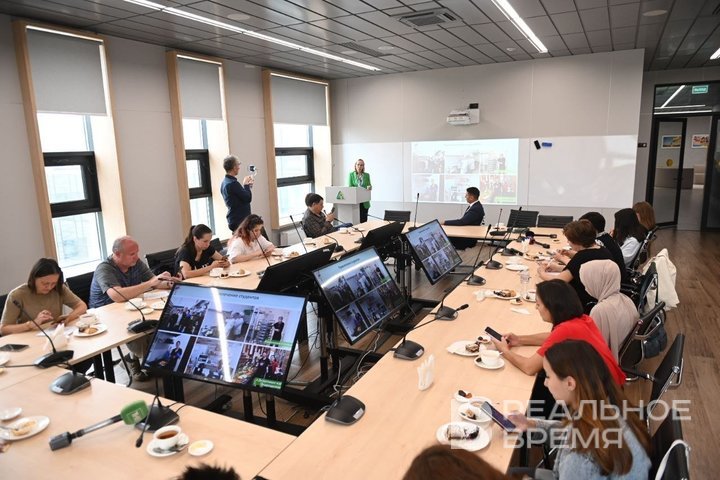
By 1 September, Tatarstan plans to complete major repairs in 49 schools, 20 kindergartens, 14 vocational education buildings and 14 college halls of residents, said Vice Minister of Education and Science of the Republic of Tatarstan and head of the Department of Supervision and Control in Education Ramis Muzipov on 20 August. The republic is also carrying out major repairs of food service areas increasing the number of seats in cafeterias and thinking about how to help children love school meals. Read more about it in a report of Realnoe Vremya.
By 1 September, Tatarstan will complete major repairs of 49 schools
The press conference began with a tour of a model Kazan school — one of the buildings of the Adymnar — a Path to Knowledge and Harmony multilingual complex located on Abdulla Bichurin Street. The total area of studying premises in this building is 23,000 square meters, said Director of the complex Aydar Shamsutdinov.
A swimming pool, a climbing wall, a wrestling hall, a rehearsal hall for the orchestra, a culinary room, a wood and stone room, an art workshop with a ceramics area are open for students here. On the walls of the school are images of the map of Kazan.
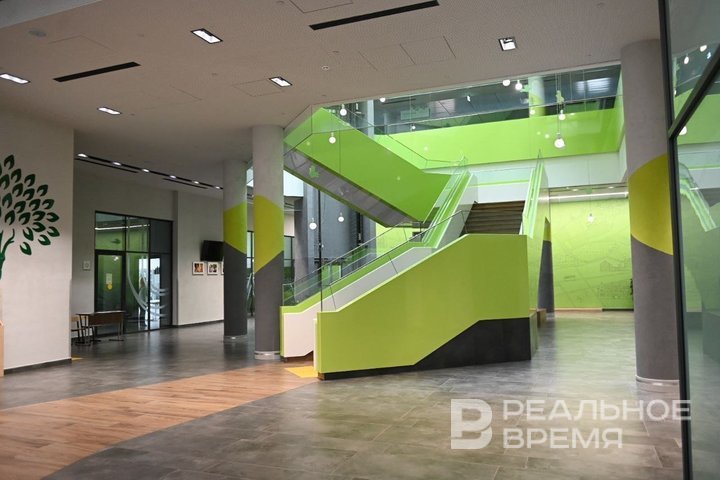
“So that the child develops a certain competence as a Kazan citizen who knows where the city is, what interesting things there are here from the very beginning,” the director explained.
Other educational institutions of Tatarstan are also preparing for the new academic year. By 1 September, the republic plans to complete major repairs in 49 schools, 20 kindergartens, 14 vocational education buildings and 14 college halls of residence, said Vice Minister of Education and Science of Tatarstan, head of Department of Supervision and Control in Education Ramis Muzipov
“We are renovating two gyms equipping them with sports equipment from start to finish under a separate programme,” he added.
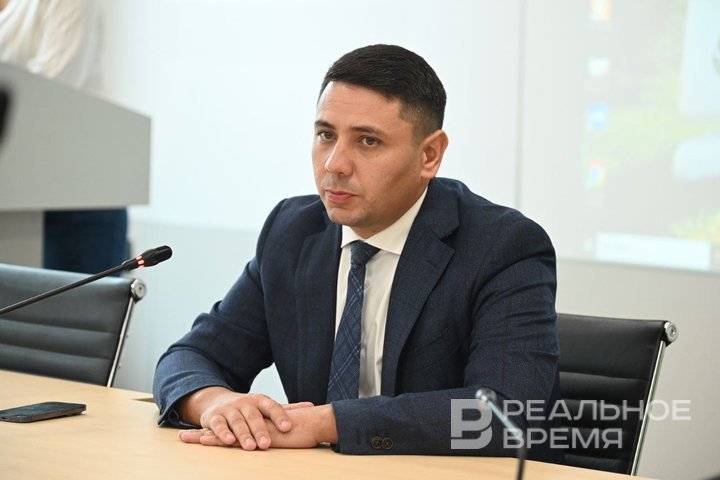
According to Muzipov, repairs are also underway in 94 school canteens. Construction and installation work in the food service areas of educational institutions is already 99% complete.
“Russian tests will not be held unexpectedly”
Speaking about changes in the educational process, the speaker mentioned that the process of conducting tests will be streamlined in the new academic year. Among the federal tests, only two remain. These are the Russian Tests and the National Education Quality Assessment. Moreover, not everyone will have to take the latter: only year eight from 19 schools.
“A special feature of this year’s Russian test is that they will be included in the class timetable. Therefore, they will not be held unexpectedly. They will be known from the very beginning, as soon as the school schedule is approved,” Muzipov said.
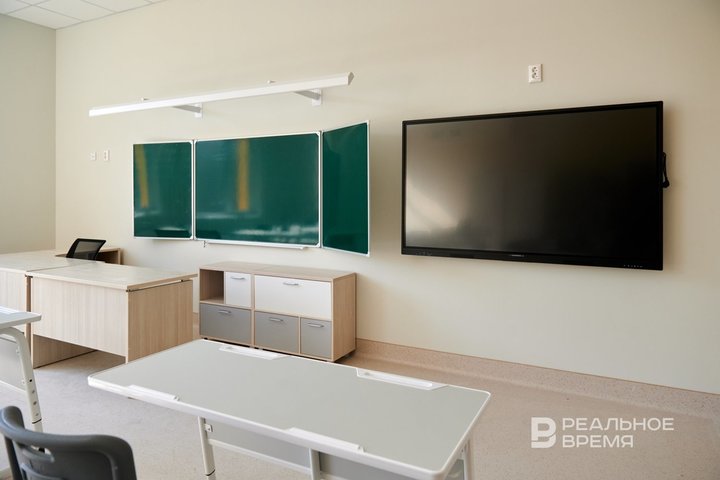
The subject Technology will now be called Labour and will be supplemented with new modules. Similarly, the subject Fundamentals of Life Safety will replace Fundamentals of Security and Defence of the Homeland where schoolchildren will additionally study drones. The geography programmes have also undergone changes due to the inclusion of new territories in Russia and in literature: some works were excluded from textbooks, while others, on the contrary, were added.
More than 1.3 billion rubles have been spent on modernising canteens since 2019
The number of schoolchildren in Kazan has been growing for 18 years. If in the 2006-2007 academic year, 97,700 people studied at school, then 10 years later, their number reached 112,000. On 1 September 2023, 175,000 children went to school. This year, their number will reach 186,000, and next year, 192,000 schoolchildren are expected, said Director General of the Department of Food and Social Nutrition of Kazan Rima Mukhamedshina. The department has been organising the feeding of children in schools since 2006. Free lunches in the city, as across Russia, are received by primary school students.
In addition, 18% of high school students in the capital of Tatarstan eat at the expense of the municipal budget. Among them are children with disabilities and children of soldiers involved in the special military operation. She said that Kazan became one of the first cities in the country to introduce the Cook & Chill technology. Main courses and side dishes are prepared at the food processing plant subjected to shock cooling and packed in special thermal boxes, and in schools, the dishes are only heated before serving. Half of Kazan schools work this way. In the rest, food is prepared by cooks. The school menus includes 245 dishes.
According to the speaker, the Kazan food processing plant with an area of 9,000 square metres can currently produce 65,000 portions per day. It is constantly modernised. For example, the line of shockers that cool the products to the required temperature has been completely replaced.
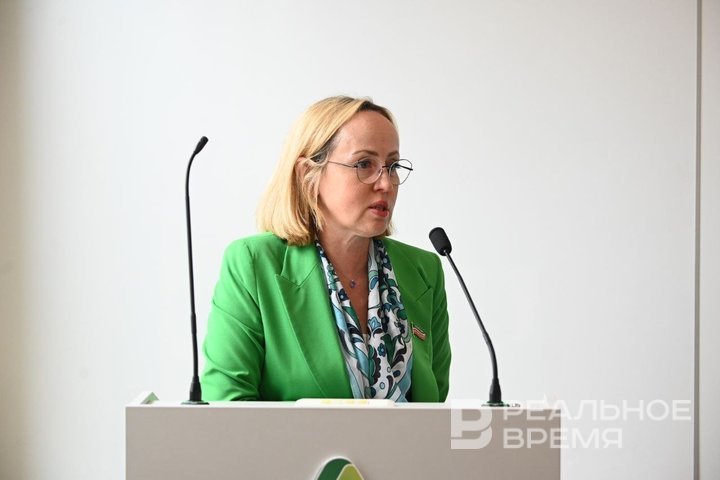
“We are currently expanding our capacities, we have moved some of the offices to another location and are increasing the plant due to this, because the number of schoolchildren is growing,” Mukhamedshina shared.
But there is not enough equipment for successful work, we need workers. “The personnel issue is also very acute for us,” the speaker admitted. The plant actively involves students: about 400 students from the College of Small Business and Entrepreneurship, the International College of Service and the Kazan Trade and Economic College undergo practical training every year.
People with disabilities are employed: almost 40 such employees work at the enterprise. A team of deaf-mute girls who are engaged in the production of vegetable semi-finished products even became among the winners of Abilympics — a championship of professional skills among people with disabilities. Over the past year and a half, the department has also begun to attract people with mental disabilities.
As for school canteens, 43 of them were renovated in 2021, 30 in 2022, and 19 in 2023. Since 2019, more than 1.3 billion rubles have been spent on these purposes. 962 million rubles of this amount were allocated for construction and installation work, 237 million for equipment, 93 million for furniture and decorative elements, and 58 million for dishes. Another 7 million rubles were allocated for computers. As a result, over five years, the number of seats in school canteens has increased by 11,000. 2024 is going at the same rapid rate, Mukhamedshina assured the audience.
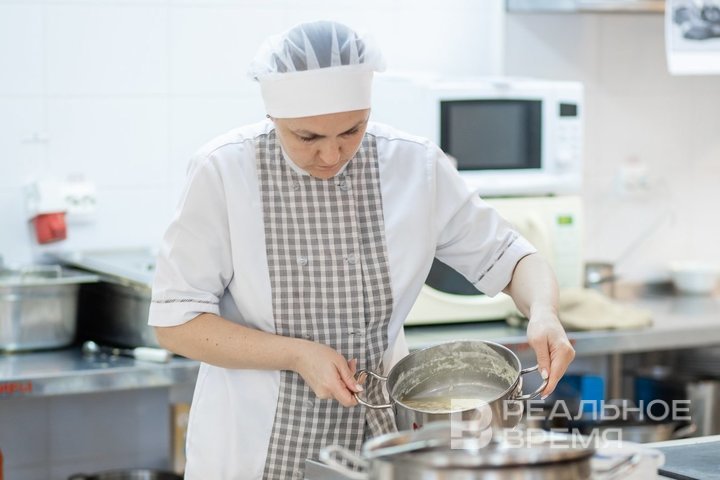
How to increase the attractiveness of school meals
The attractiveness of hot meals in Kazan is increased with the help of the School Restaurant project. It was launched back in 2016 and by now has covered almost all Kazan schools — both new and those that have undergone major repairs, Mukhamedshina claims.
By 1 September 2024, 184 such restaurants will be operating in the city. Students can decide for themselves what they want to have for lunch. The choice includes soups, salads, several types of side dishes, meat, fish, complex dishes such as pilaf or roast. A free choice menu costs 79 rubles. If this is too expensive for a student's parents, they may prefer a set lunch for 55 rubles.
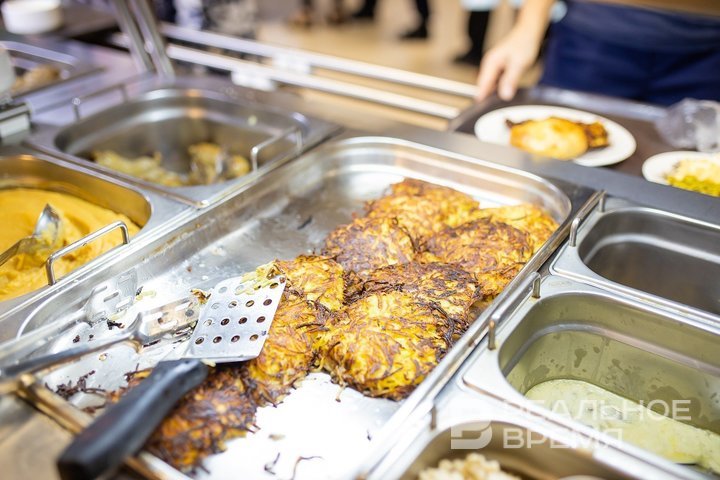
Will schoolchildren choose only crackers and sausages? The older the schoolchildren, the more responsible they are about their nutrition, admits Mukhamedshina. In order to interest children of all ages in healthy food, the nutrition department holds lectures, school picnics with material classes, and develops educational posters in Russian and Tatar. It also works with parents: it shows them school canteens, organises tastings and encourages them to make entries in the parental control log.